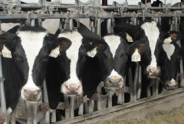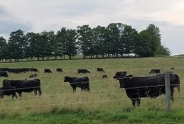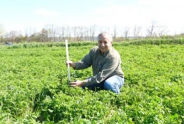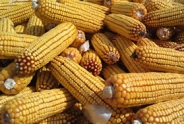Human Resource Management: The devil is in the details…
Nicole Tommell, Area Ag Business Management Specialist/Team Leader
Central New York Dairy and Field Crops
The first order of business is to review all files for current, terminated or employees who have left on their own accord from the last calendar year. There are a series of documents that all employees must have in their files. All employees must have Form I-9 (Employment Eligibility Verification) on file. In the event of a change of employment, employers have the obligation to retain the I-9 form for three years after date of employment or one year after date of termination, whichever is later. Since the I-9 form is comprised of sensitive information, the U.S Citizen and Immigration Services (USCIS) strongly suggests that all employers keep the I-9 forms separate and secure from the general personnel file.
The tax component of the federal mandate is the W4 (tax withholding certificate) form. The W4 is the trigger for the W2 filing form at the end of the fiscal year. This too must be filled out and filed at the time of hire. All W4 forms must be kept for 4 years after the last filing of the 4th quarter of the calendar year (www.irs.gov/businesses/small-business-self-employed/employment-tax-recordkeeping). In addition, if the employer is holding W2's for previous employees those should be placed in the employee file and not destroyed. As employers, you must make in good faith an effort to distribute the W2 to the employee however, in many instances farm laborers do not leave forwarding addresses to send this documentation.
The New York State requirements are in addition to the Federal regulations. All NYS farm workers must have the Farm Worker Agreement (NYS LS 309) in their personnel file. This is the contract between the employer and the farm worker designed to give specific information to the employee regarding pay rate, overtime, housing, benefits, etc. New York State does provide a document (https://labor.ny.gov/formsdocs/wp/ls118.pdf) or employers can utilize their own so long as all information that is required is gathered. It is important to review this document annually for accuracy and compliance. In addition, this document must be retained for 6 years past the employment period.
Re-certifications and trainings are also a hot button issue for employers. With the onset of spring, many find themselves in full gear headed to the fields. Unfortunately, there are times when on farm safety protocols are not reviewed and trainings are put to the wayside. This could spell disaster to the farm employee especially if they are new or unfamiliar with a piece of equipment. We are very fortunate that NYCAMH (New York Center for Agricultural Health and Medicine) provides On-Farm Safety trainings complete with a training roster and certificate of completion at no cost to the farm. NYCAMH's trainings are in line with USDA, OSHA and GAPS requirements. Check out their website for more information at www.nycamh.org.
Finally, on October 9, 2018 all New York State employers (even if you employ 1 person) must have a Sexual Harassment Prevention Policy in place. If you do not have the prevention policy in place, I strongly encourage you to review the Cornell University CALS Agricultural Workforce Development website and adopt the NYSDOL model policy and complaint form. This form can be filled in with your farm information and will serve as the first step to compliance. The next step is to hold trainings that are interactive for your employees before October 9, 2019 and every year thereafter. NYS has provided some videos however, they are not very relevant to the agricultural community. The videos are in multiple languages and can serve the purpose in a pinch if a farm would like to get this completed. Currently we have a small team of Cornell CALS/ Extension folks working to develop videos and post-test training kits for use. Stay tuned for more information when it becomes available.
Working through human resource paperwork can be tedious and time consuming for many farms. Many times farm owners are concerned with doing the basic paperwork upon hiring or termination. Unfortunately, the onset of new mandates will continue to add an extra burden on farm owners. Inspection of records from NYS Department of Labor is a very real possibility and we want you to be ready if that occasion should arise. Remember to look to the Extension Regional Team for assistance or visit the Ag Workforce Development page for more information, www.agworkforce.cals.cornell.edu.
Upcoming Events
New York State Fiber Conference
June 9, 2024
Bouckville, NY
Theme for this year: Quality Matters
Announcements
Cash Rent and Custom Harvest Survey
To date, there is limited information available about rental rates and fees for crop harvesting. Farms can use this valuable information for their farm business planning to help improve decision making and profitability.Farmers Can Join MeatSuite For Free!
MeatSuite.com is a free resource provided by Cornell University where NY meat farmers can create a farm profile and list their bulk (wholes, halves, quarters) and bundled (i.e. Grilling Bundle) meat products.Why should farmers join?
1. It's free and easy!
2. Connect with more local customers. In the past year the MeatSuite.com farm directory had 8,300 visits from New York consumers. Farm profiles get as many as 25 views per month from potential local customers. We also spotlight MeatSuite farms on social media and bring attention and purchases to farms through highlights and giveaways.
How do I join?
Farmers can visit https://www.meatsuite.com/farmers/ to create a free farm profile. You must list at least one product for your farm's profile to go live. You'll also have access to Cornell's free Meat Price Calculator, a helpful tool for pricing your meat to make a profit.
While you're on MeatSuite, check out the "Creating Consumer-Friendly Bulk Meats" publication on the log-in page. It has tips on how to create bulk meat products that are easier for first-time buyers to say "yes" to.
If you have any questions as you create your farm profile or products, we're here to help! Please email Matt LeRoux at mnl28@cornell.edu.




